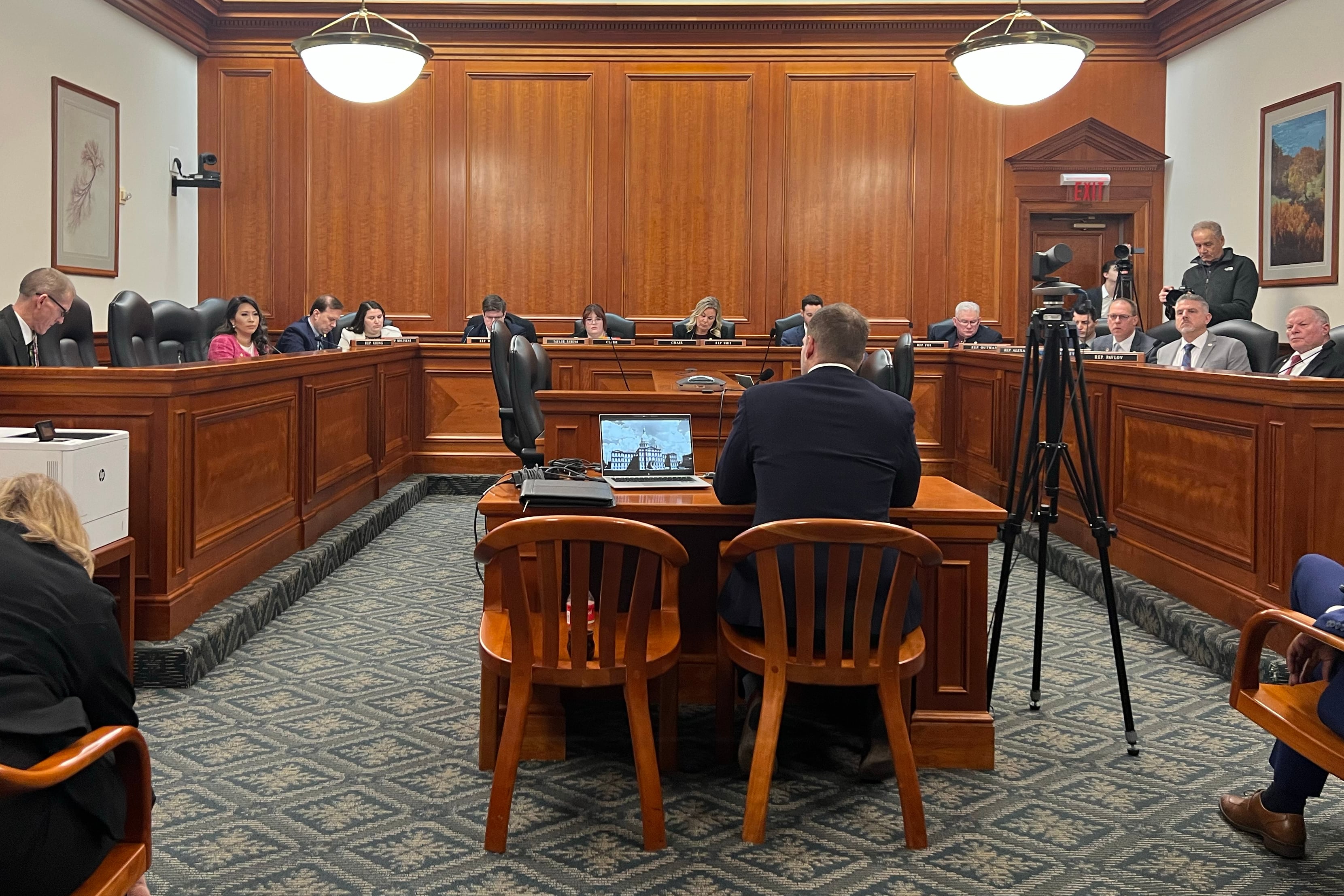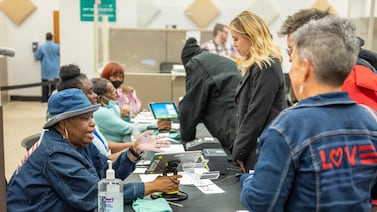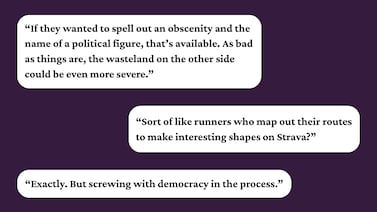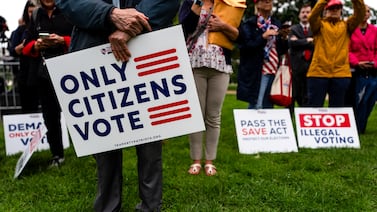Votebeat is a nonprofit news organization reporting on voting access and election administration across the U.S. Sign up for Votebeat Michigan’s free newsletter here.
In a 90-second meeting Tuesday, the House Election Integrity Committee voted 6-3 to send a proof-of-citizenship requirement for voters to the full House.
It was a critical step for House Joint Resolution B, which seeks to amend the Michigan Constitution to require voters to prove their citizenship before registering and to require election officials to check the citizenship status of those already registered.
The proposal has a long way to go before it becomes law, though. Potential constitutional amendments must win approval of two-thirds of both chambers of the Legislature before they appear before voters for final approval.
The House is narrowly controlled by Republicans, and most of them have already signed on in support of the resolution. But two-thirds approval would require support from several Democrats as well, and so far none have publicly supported the proposal. The Senate, meanwhile, remains in Democratic control and is unlikely to even consider the resolution.
Should the measure fail in the Legislature, Rep. Bryan Posthumus, a Republican from Rockford and the proposal’s author, has confirmed that a signature-gathering initiative run by Prove It Michigan would aim to get the proposal before voters in 2026. That group is run by the Committee to Protect Voters' Rights, which has advocated against previous ballot measures that made it easier to vote.
No public testimony was read Tuesday before the committee vote, but at a hearing last week, testimony from the public leaned heavily against the proposal. Groups including the ACLU of Michigan, Promote the Vote, and others cited concerns about potential disenfranchisement if people were required to present documents proving their citizenship.
Known cases of noncitizen voting are rare, but a single case in Michigan in 2024 has drawn attention from lawmakers. In that case, 20-year-old Haoxiang Gao, a University of Michigan student from China who allegedly lied on forms attesting to his citizenship, faces felony charges. His vote was counted.
Gao allegedly registered and cast his ballot the same day, shining light on a potential loophole in Michigan’s expanded registration laws. Supporters of the House legislation argue that even a single example of noncitizen voting is proof the resolution is needed; opponents liken it to taking a chainsaw to a problem that requires a scalpel.
Democrats say they will offer legislation to try to address the problem without requiring all voters to prove their citizenship, but they haven’t introduced any yet.
The Michigan House could consider the full resolution as early as Tuesday afternoon, when it is next scheduled to meet.
Hayley Harding is a reporter for Votebeat based in Michigan. Contact Hayley at hharding@votebeat.org.






